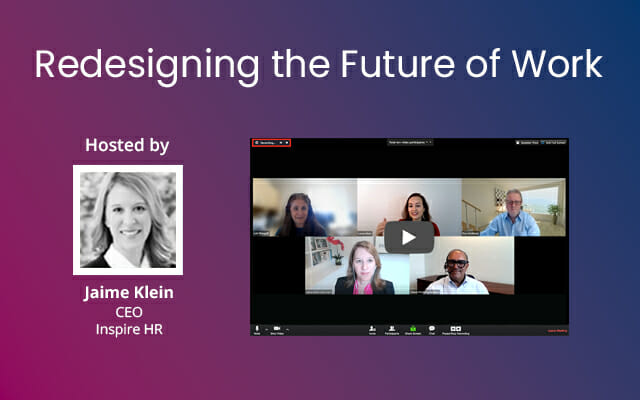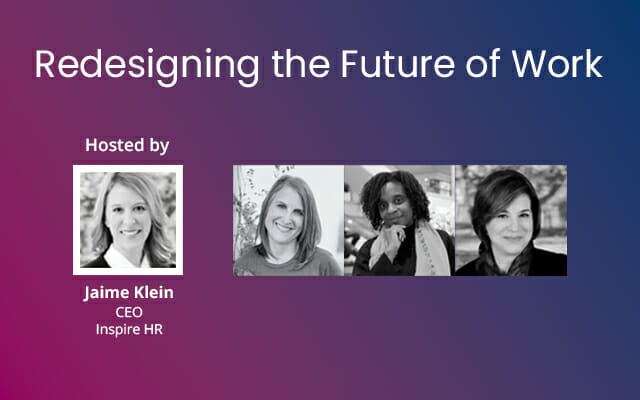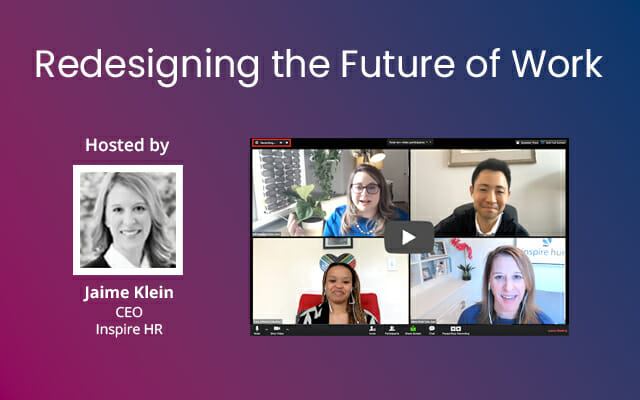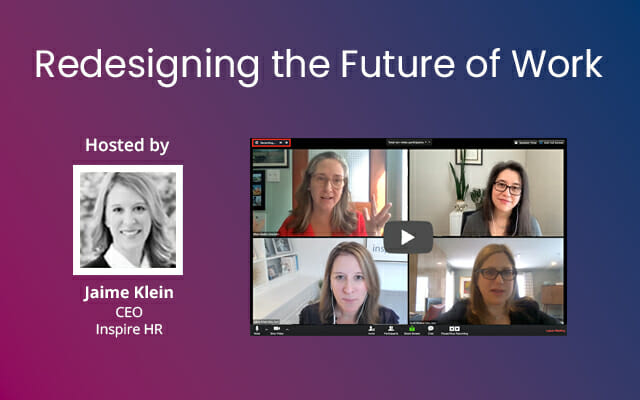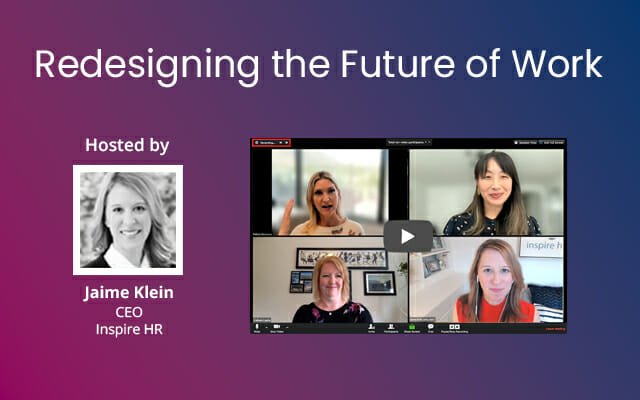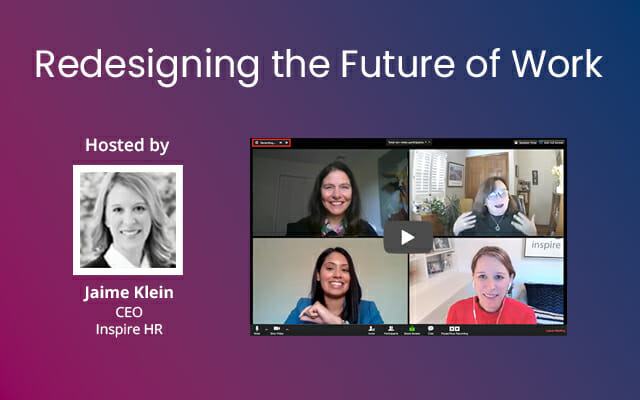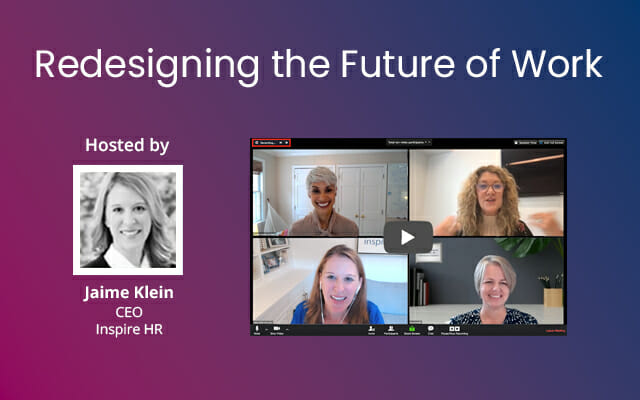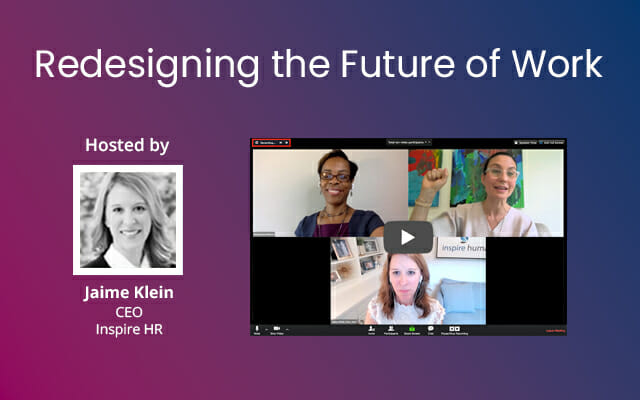
Hybrid Challenges to Diversity, Equity, Inclusion, and Belonging
AUG 10, 2021
How to manage in a hybrid environment is the question dominating leadership and HR discussions right now. But, as we’re all focused on adjusting to the next phase of work, we can’t afford to lose sight of the work there is still to do regarding diversity, equity, inclusion, and belonging (DEIB)—particularly where the work is exacerbated by a hybrid model.
Hybrid environments can be both an equalizer and a divider. There are some clear positives, including: flexible scheduling that better accommodates caregivers, home environments being more conducive to allowing people to bring their whole authentic selves to work, and fewer commutes that ease the burden on differently-abled staff, among others.
While we champion these implications of hybrid work environments, we have to also recognize and address the divisive aspects of the new model. And considering that employees who feel very included are close to three times as likely to feel excited by and committed to their organizations than those who do not, it’s imperative for leaders to recognize and address the issues that hinder inclusion.
As we work with clients across industries, we have found three common challenges to diversity, equity, inclusion, and belonging in a hybrid environment:
Unequal access to leaders
Facetime with decision-makers is crucial for anyone’s career trajectory. And while one-on-one and team meetings can certainly have a common frequency whether on Zoom or in-office, employees choosing to work two or three days from home lack the opportunity for ad-hoc meetings and conversations. In-office employees can more easily develop rapport where a VP passing them in the aisle on the way to the conference room could say, “Why don’t you come in and listen—you may pick up some useful context.” Meanwhile, the employee working from home on that day simply isn’t top-of-mind to be invited.
When left to chance like this, mentorship opportunities tend to favor the people most like those already in a position of power—the employees they relate best to. McKinsey recently found that even though 87% of companies report having a sponsorship program in place, more than 67% of Black professionals report they do not have a sponsor. Companies operating in a hybrid model need to be especially diligent and deliberate in establishing mentorship opportunities.
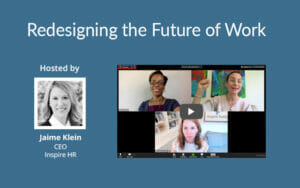
Favoring in-office employees
Jamie Dimon of JP Morgan Chase calls employees who choose to come into the office the hustlers. Sandeep Mathrani of WeWork sees them as “the most engaged.” And Goldman Sachs CEO David Solomon sees working from home the way many view a vacation, telling staff in an internal memo: “As September begins, we hope you were able to take time off over the course of the past few months to rest and recharge…”
Executives are pretty well aligned in favoring as much in-office time as they can get from employees. In fact, 83% of CEOs polled by the Best Practice Institute say they want employees back in-office full-time. This stands in stark comparison to 10% of employees who prefer full-time in-office. This gap can lead to a damaging level of similarity bias. Leaders feel they perform best in-person, and whether consciously or subconsciously expect the same from their team members. That’s why they can see the people coming into the office as the hustlers. With a hybrid model, companies must look at what fosters a sense of belonging for each individual. Copy-pasting what works for a leader will only serve to reinforce the status quo, pausing—if not backtracking—DEIB initiatives.
Less diverse office spaces
According to the Future Forum’s Remote Employee Experience Index, 97% of Black knowledge workers in the U.S. want a hybrid or full-time remote working model, compared with 79% of white knowledge workers.
Even more telling, the Forum finds that for Black employees, working remotely compared to working in an office can:
- Double the sense of belonging at work,
- Boost the ability to manage stress by 64%, and
- Improve work-life balance by 25%.
But, what’s behind these numbers?
The largest factor is the absence of microaggressions at home.
Stanford professor Brian Lowery explains how office-centric work perpetuates an outsider status: “Black employees experience stress associated with working in a predominantly white workplace, which contributes to a lower sense of belonging. Importantly, it might not be work activities per se driving these effects, but all of the big and small social interactions that make up much of our work days.”
One of our most sought-after trainings is Unconscious Bias, and without fail we always see multiple lightbulb moments—whether we’re with a small leadership team or the organization as a whole. There are biases that we all bring to our lives. When not checked, resulting microaggressions can be hurtful, stressful, and alienating to colleagues—and can extremely hinder a sense of belonging.
All under-represented groups experience microaggressions in the workplace. And even when these are the result of good intentions, they still have an impact. Think about all of the ways people can feel more themselves at home:
- Employees who identify as non-binary can more easily display pronouns on their Zoom screen than face the awkward statements face-to-face.
- A nursing mother can avoid being asked how long she plans to breastfeed when taking a moment to pump.
- Differently-abled people don’t encounter unnecessary offers of assistance…
Now think about who is most likely to favor working in the office. It’s the employees with the fewest barriers to doing so—predominately able-bodied, white, cisgender males.
HR and business leaders looking to build a strong sense of belonging where employees want to come back to the office need to ensure inclusion remains a top priority. As we engage with more companies on RTO planning and employee engagement, one thing is abundantly clear every single time: companies with inclusive cultures that foster a strong sense of belonging have the advantage.
